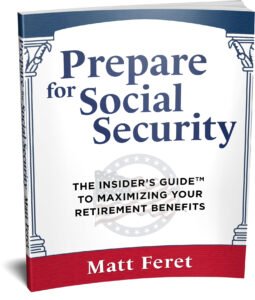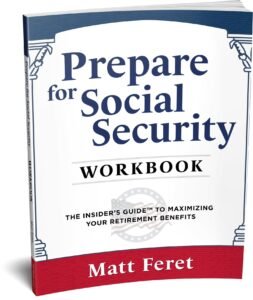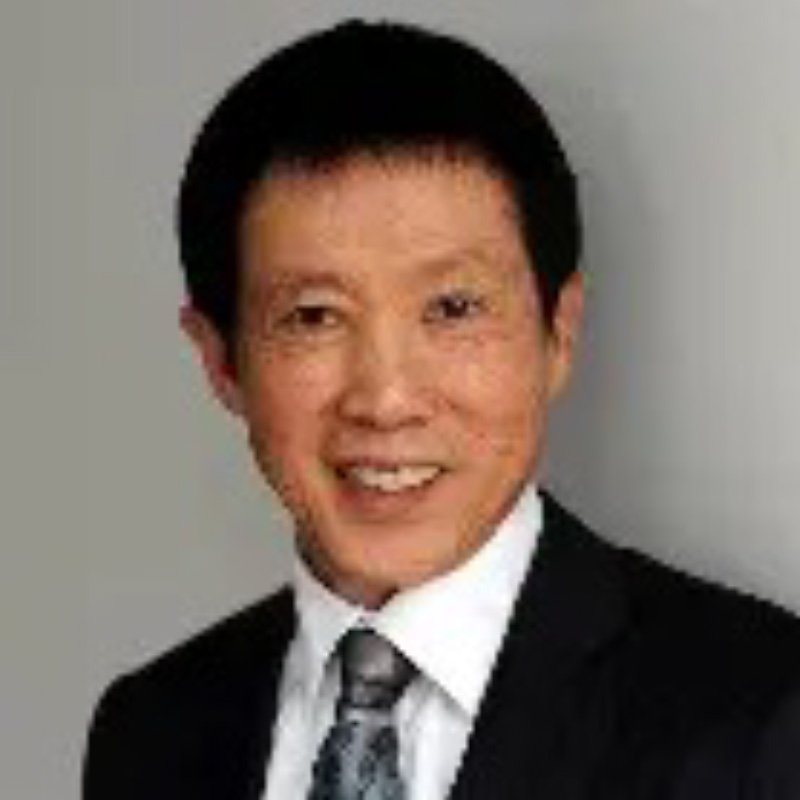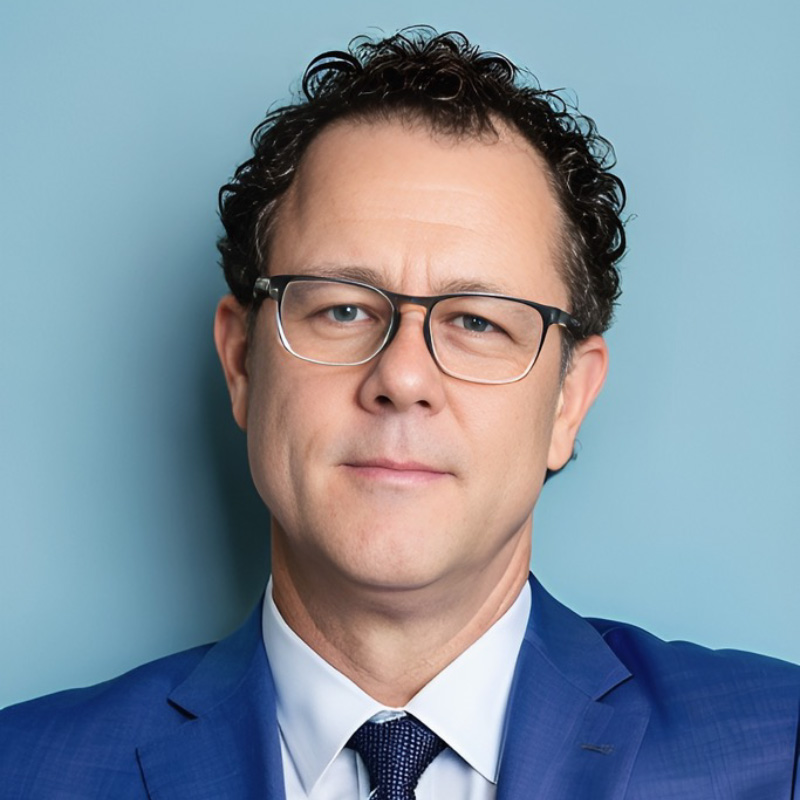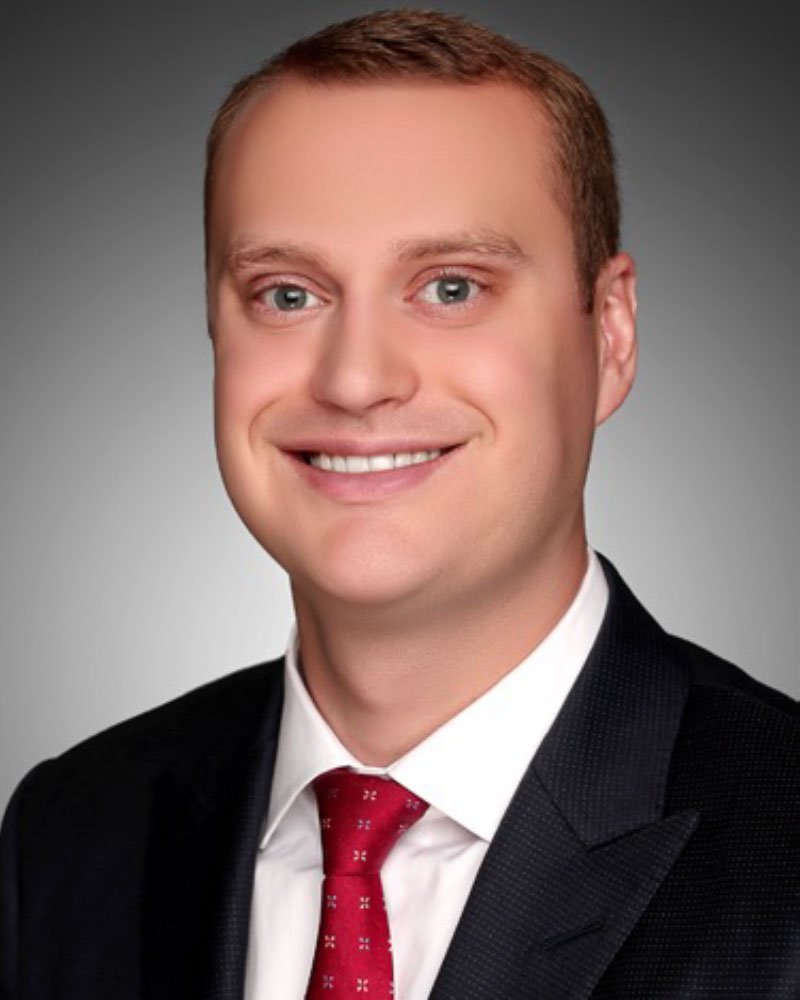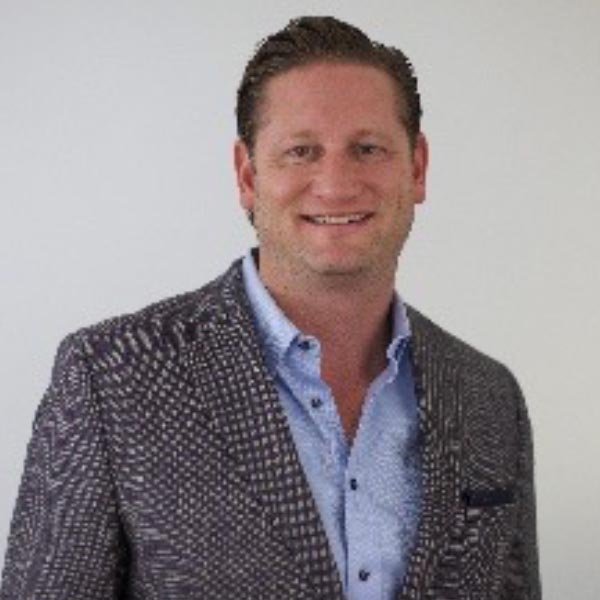#019
Share This:

“This either forced or unforced retirement happened. You need time. I suggest don't make any big decisions. Don't divorce people. Don't go into a partnership. Don't take on 5,000 board things. Don't do the crazy, right? Take a year and just... I felt that my body just had to settle, and I hear this from many people that you're so revved up that you're like, "Oh, man. Okay. This is something new here. I've got to test the waters."
- Nancy Schwartz, Founder of Envision Healthy Retirement
My guest today is Nancy Schwartz, Founder of Envision Healthy Retirement. A former executive at Korn Ferry, Nancy is also a successful entrepreneur and has worked across a variety of industries in markets ranging from global multinationals to early-stage private equity and venture capital.
This edition of The Matt Feret Show will give you an insider’s guide to addressing the non-financial aspects of a healthy retirement and the re-creation of an intentional life.
Listen to the episode on Apple Podcasts, Spotify, Deezer, Podcast Addict, Stitcher, Google Podcasts, Amazon Music, Alexa Flash Briefing, iHeart, Acast or on your favorite podcast platform. You can watch the interview on YouTube here.
Brought to you by Prepare for Medicare – The Insider’s Guide book series. Sign up for the Prepare for Medicare Newsletter, an exclusive subscription-only newsletter that delivers the inside scoop to help you stay up-to-date with your Medicare insurance coverage, highlight Medicare news you can use, and reminders for important dates throughout the year. When you sign up, you’ll immediately gain access to seven FREE Medicare checklists.
Quotes:
“Then, there's the fear. There's a lot of fear of the unknown and like, "Well, if I just stay right here and don't do anything, then I'll be okay," but that freezes the person. So, it's important to keep going, and it's important to raise your hand if you're not feeling well because retirement is universal. It crosses all countries. It crosses all cultures. How we deal with it is on you, and to raise your hand. So I think that that's really important. Fear can look like anxiety. It can look like many different things. So know your triggers.
- Nancy Schwartz, Founder of Envision Healthy Retirement
“Thinking that your corporate buddies will have the time to play with you? They don't. They're running companies. Maybe they could see you Sunday afternoon for two minutes and play around to golf, but that's it. They can't go traveling with you and whatever. It's a shock because people will say, "I thought my buddies were my buddies. Well, what happened?" Well, you're out, they're in.”
“I have actually a neighbor who has been a CEO many, many times over - miffed, "How could they possibly make a decision like that in my company without running it by me?" But he's not inside, right? You have to point that out to him. It's those kinds of things that can really set people into tailspins.”
- Nancy Schwartz, Founder of Envision Healthy Retirement
#019
Selected Link from the Episode:
Full Show Transcript:
00:00:00 / 00:42:30
LEGAL CONDITIONS:
Matt Feret/MF Media, LLC owns the copyright all content and transcripts of The Matt Feret Show, and themattferetshow.com with all rights reserved, as well as right of publicity. All rights reserved.
No part of this publication may be reproduced or transmitted in any form or by any means, electronic or mechanical, including photocopying, recording, or by any information storage and retrieval system without written permission of the publisher, except for the inclusion of brief quotations in a review. You are welcome to share the below transcript (up to 500 words) in media articles, on your personal website, in a non-commercial article or blog post, and/or on a personal social media account for non-commercial purposes, if you include attribution to “The Matt Feret Show” and link back to the themattferetshow.com website.
WHAT IS NOT ALLOWED: No one may copy any portion of the content or use Matt Feret’s name, image or likeness for any commercial purpose or use, including without limitation inclusion in any books, e-books, book summaries or synopses, or on a commercial website or social media site (e.g., Facebook, Twitter, Instagram, etc.) that offers or promotes your or another’s products or services.
DISCLAIMER: This publication is in no way sponsored, associated, authorized, approved, endorsed nor, in any way affiliated with any government agency, company, trademarked names, or other marks. Any such mention is for purpose of reference only. Any advice, generalized statistics, or opinions expressed are strictly those of the host and the guest. This publication, The Matt Feret Show nor The themattferetshow.com website is meant to replace the sage advice of healthcare, insurance, financial planning, accounting, or legal professionals. You are responsible for your financial decisions. It is your sole responsibility to independently evaluate the accuracy, correctness or completeness of the content, services, and products of, and associated with this publication. The thoughts and opinions expressed in this publication are those of the host and guest(s) only and are not the thoughts and opinions of any current or former employer of the host and guest(s) nor is this publication made by, on behalf of, or endorsed or approved by any current or former employer of the host and guest(s).
Matt Feret (00:02):
Hello, everyone. This is Matt Feret, author of the Prepare for Medicare book series, and welcome to another episode of The Matt Feret Show where I interview insiders and experts to help light a path to a successful retirement. Come say hello at https://themattferetshow.kinsta.cloud for YouTube videos, show links, notes, websites referenced, quotable quotes, and the complete show transcript.
(00:30):
Make sure to check out the 2022-2023 second edition of my bestselling book Prepare for Medicare: The Insider's Guide to Buying Medicare Insurance. You can get it in hardcover, paperback, Kindle, all on Amazon. If a friend of yours already bought it, bug them. Get them to lend it to you or give your librarian a friendly nudge and get them to order it.
(00:53):
Many people retire and think, "Now, what? Fish all day? Golf? Spend time with the grandkids? Volunteer? Travel? Then, what? Get into consulting? Walmart greeter?" When do you even start thinking about all this stuff? No matter your age, when you retire, there's obviously a lot to plan and a lot to do before hanging it up. Most people spend a lot of time paying attention to the financial aspects of retirement: cash flows, 401(k)s, IRAs, Social Security timing, Medicare, downsizing, and moving. You should pay attention to all of that. Those things are very important.
(01:37):
There are also a whole lot of people and resources out there to help you with all of that. What's not so available is what my guest Nancy Schwartz does. She's a former business executive and the founder of Envision Healthy Retirement. She works with people to plan out the non-financial aspects of retirement so often overlooked. Nancy helps people with the "Now, what?" Defining your personal growth path doesn't stop when annual reviews at your old job go away. Work friends disappear. Yes, daytime TV is still bad. How is your relationship with your spouse or partner going to change? How's your mental health going to change when you retire? How do you build deeper connections with your spouse, friends, community, explore new passions, and set a new course for the years and decades ahead? This edition of The Matt Feret Show will give you an insider's guide to the non-financial aspects of retiring you should be thinking about well before you pull the ripcord. Enjoy.
(02:41):
Nancy, welcome to the show.
Nancy Schwartz (02:43):
Thanks, Matt. I'm very excited to be here today.
Matt Feret (02:46):
So tell everybody what you do, how long you've been doing it, and how you help people.
Nancy Schwartz (02:51):
Thank you for the questions. So what I do is I work with executives in and around their career as they are thinking about retirement and move them from a career into healthy retirement, predicated with the word "health," and that's really the underlying thrust because I believe that you can't have retirement without your health. Very important. How I help them is one-on-one coaching, and that's what I do. How long I've been doing it? We launched this year, but I'm a 40-year corporate executive, so I have a little wingspan behind me.
Matt Feret (03:32):
Nice. Thank you. So how did you get into this? What spurned the idea to start this?
Nancy Schwartz (03:38):
Crazy ideas. So my usual make-it-up. So I was in and around retirement myself and looking for programs where I could help myself and took the traditional route of taking a lot of retirement classes, but for me, it felt very unsatisfactory, and I knew there just had to be something more and more there, but what was that? What was that thing? So I came to the realization over time that I love science, and I love technology, and I wanted to combine that because we have such incredible consumer available, right, from all the universities, and the biotech, and the futuristic thinkers that we know about. So I said, "Hmm, what if I could combine the health and the science with a little piece of the retirement and packaged that?" That's how I went out. I really educated myself with health and retirement people for about five years, and then I rolled up a proprietary science-based product that I now teach my executives and business experts in various stages, obviously, when they come to me.
Matt Feret (04:57):
So tell me a little bit of the story. When you were thinking of retiring or had you already retired, did you... I mean, right, there's gobs of stuff out there on what to do with your IRAs, and your 401(k)s, and when to elect, but what did you find missing when you did this?
Nancy Schwartz (05:15):
Yeah. So, great points. So you're talking a lot driven by the financial industry sector, and yes, that's absolutely needed, and thank God for companies because they provide that financial package when business experts either exit timely or untimely, however it happens. Right? So, for me, I've just been very, very lucky in my career, and I started having these thoughts happen late at night in the office like, "Who am I? What am I doing? What am I going to do in retirement?" I knew that the market was moving in such a manner that, if you will, traditional retirement was no longer a thing. Right?
(06:06):
I watched my dad retire, and he was so incredibly elegant, and it just seemed so easy. I was very struggling with like, "Man, what am I going to do?" I love business, right? So, there in a conundrum, and yet I knew at the same time when I was wrestling with all these questions, I knew that I just didn't want to stop the business piece, but I wanted to do it in a manner where it was more controlled so that I wasn't working these tremendous hours as everyone does to be successful in Corporate America. So I said, "All right. What does this look like?" and I had absolutely no clue, and so I began a journey.
(06:59):
This is how you create stuff is you go out, you do market surveys, you figure out minimal viable product, and then you build stronger product. I mean, I'm talking to the marketing and sales guys, and I'm seeing you're smiling, so you could add a lot of value over here. I should have known you before then. I'm passionate about the health piece, and I think that it's really, really important. As you and I know, most executives don't have the latitude to really take care of themselves because they're really taking care of the company moving from thing to thing to thing to thing. So is it the SEC? Is it the product build? Are they in an M&A? They're traveling nonstop. What is it? So there's no time left for themselves, let alone their friends and family.
(07:57):
So coming back to your front end of your question about financial services, yes, the finance piece is sewed up, but there is what I call the you, the you planning. There is none out there, and it's a known void in the marketplace, but what to do? Right? Everybody is unique. Everybody is different. But we also know from a statistic point of view that the number one global concern in the marketplace is fear of mental and physical inactivity in aging and longevity, and so I started on this retirement sort of path, but then I made a little shift to the right because I'm like, "Man, this is more than just retirement." This is really about quality of life, longevity post-career.
Matt Feret (08:56):
So you said earlier you retired or thinking of retiring and...
Nancy Schwartz (09:03):
Yeah. Absolutely.
Matt Feret (09:03):
Then, "Who am I? What am I doing?" I mean, personally, I don't know... I mean, I can't fast forward to the time where I even think about retirement. I mean, I know it's closer that way than it is looking back in my 20s, but I still don't...
Nancy Schwartz (09:19):
You can tell that it's not there yet.
Matt Feret (09:21):
The concept of fishing and reading on my rocker, no, I'm not doing that, and I can't be the only one. It sounds like you've been that too, and you found people with the same kind of piece like, "Okay. I'm transitioning out of Corporate America or sold my small business," or just, "This is it. I'm ready to do it," but it's that, "Now, what? What am I doing now?"
Nancy Schwartz (09:48):
Right, the "Now, what?" Right.
Matt Feret (09:49):
Yeah. What were the first things that you found? Well, let me start here. What was the easiest? I mean, I've always thought, again, bringing myself into this, that I'll go volunteer. Big Brothers Big Sisters. I'll do a charity. I'll do Feed My Starving Children, and I'll donate my time there. Did you go through a list, and how would you recommend somebody go about thinking of these things?
Nancy Schwartz (10:13):
So I think that everybody's situation is unique, right? So it has to fit you. So, for me, yes, I did look at volunteer. I went to the hospitals. I spent a lot of time caring for family members, so I thought, "This is perfect. I can just..." and the HR woman looked at my resume, and she rejected me. She said, "With that resume, no. You're going to be very unsatisfied. You're going to come down in three hours." I'm like, "No, no, no. Please hire..." No, not hire. I don't know what you do. Volunteer? "Please accept me as a volunteer." Eh, negative.
(10:48):
So then, I went to other charities, and this woman was right because I did volunteer. I did a lot of volunteer work trying to meet people and seeing... Who is that volunteer? Right? Who is that? Why are they passionate about that organization? I really encourage people to scope out that organization because sometimes what you think it is isn't really what it is. Right? But at the end of the day, lovely, beautiful people, love the foundation, the organization, whatever it was, but it wasn't my cup tea.
(11:24):
Like this weekend, I am doing a walk raising money for school, education, that type of thing. I'm part of a community that's doing it, but that's just a little piece of Sunday. That's not like my every Sunday, right? So I think it's searching, and it's trial and error. It's curiosity and exploration, trying to find the right fit, and then thinking about, to your point, transferable skills. Right? So I know that you have so many attributes, Matt, that there'll be something out there for you where you can combine, if you wish, right, if you wish...
Matt Feret (11:58):
Well, I'll tell you. It won't be fishing because that is not an attribute I have.
Nancy Schwartz (12:01):
Yeah. I just asked that. Yes.
Matt Feret (12:03):
I'm the world's worst fisherman, but yeah, go ahead.
Nancy Schwartz (12:06):
Yeah. That's off the list. Definitely. I hear you on that, but there... It's good that you know because you won't go down that path. Right? So you can go down other paths and see if it fits you in that time and moment. Right? So, yeah.
Matt Feret (12:23):
Do you categorize pieces, or do you recommend people start to categorize? Again, hey, corporate background just like you, so I go right to goals. You've got personal goals, travel goals, spiritual goals, financial goals. Do you start in with that methodology, or is that different for everybody?
Nancy Schwartz (12:41):
I think it's different for everybody and also depends on the environment. So while you maybe retired, maybe your partner is not retired. I worked with a woman who took an early package. Her husband had been retired for 20 years, and he was infirm, so he couldn't really retire with her. So every situation... and she wanted to travel. Right? So we had to structure things where he would feel included, but he couldn't travel. Right? So they did separate things on his agenda, and then she was able to travel. Ultimately, I think she built a company around her expertise in research and development because she was quite in demand when the packages came through. So everybody is different.
(13:32):
I think it's good to know the bucket list, but I can tell you that the bucket list accelerates, and it's quickly checked off for people who have resources and who can achieve. If you're goal-oriented, "I'm going to do Europe. I'm going to do Asia. I'm going to do blah, blah, blah, blah, blah, whatever it is. Okay. Now, what do we do?" Right? So that's the thinking in terms of, "Yes, go do that bucket list. You've wanted to do it all your life, or not. Stage it out, but also, think about... This is your life 20, 30, 40, 50 more years after retirement depending on your company situation. How is that going to progress through your lifetime? So, for me, I can just speak for me, I wanted something that was sustainable. So, to me, a business is that I can define, that I'm running, and that I can find my freedom. That was key in building this business, this legacy business.
Matt Feret (14:36):
Define your freedom or find your freedom?
Nancy Schwartz (14:39):
Both, define and find. Absolutely. I always felt very split operating. I had a lot of family situations going on, but I also had to show up every day and kill it in corporate. Right? So, very conflicted and very difficult. So I wanted to feel full to be together as a whole when I operated next. That was a big, big goal of mine. So, yeah. So I think it's playing with different things, and it's finding your skillsets, and your passion, and your mission, and your values, and realigning your identity and your belief systems. I mean, that's the interesting thing about healthy retirement is there's so many components besides fishing that have got to come together at the same time so that you can go off on your road, your path, where you want to go. Yeah.
Matt Feret (15:43):
I was going to ask that or re-ask that in a slightly different way, but you almost got in front of it. You said there are so many things that have to happen at the same time because I was going to go linear on you and go, "What's first?"
Nancy Schwartz (15:56):
Yeah. Well, that's a good question, and I think that... Think of it from this point of view. Let's just say I'm alive when you retire because I'm expecting you to retire way down the road, but hopefully, I've got my strength and my muscle, then you're going to call me, and we would talk about what's important to you. I mean, it's not me. It's not a written program in such that it is such with rigor. So here are some choices and some avenues that you can go down, right, because for what's important to you, let's just say, with your family, and maybe it's a side by side retirement or maybe it's not, maybe it's staged in categories. I mean, I don't know, but that's also an internal discussion as well, the communication within the family as well. So every situation is very different. Yeah.
Matt Feret (16:54):
What are some of those key denominators though? You mentioned family a lot.
Nancy Schwartz (16:59):
Yes, yes.
Matt Feret (16:59):
So sometimes, well, family can mean you're still taking care of mom or dad at different stages of health.
Nancy Schwartz (17:07):
Yes. Absolutely, absolutely.
Matt Feret (17:07):
So there's a caregiver aspect here, and then also a spouse or a partner that is in a different age and stage potentially too, and maybe even still working, and you're not.
Nancy Schwartz (17:18):
Right.
Matt Feret (17:19):
Are those all common denominators?
Nancy Schwartz (17:21):
Absolutely, and then there's the children. Do you have a performing child or not a performing child? Is there a child that needs extra support and help? The caregiving piece is also huge. I have some friends in California who went through a period of, gosh, 10 years taking care of mom and dad, right, but really had not exited work, but tailored down the hours because it was so time-consuming. Yet, her skillset was so valuable that the company didn't want to lose her, right? But at the same time, she was the anointed sister. There's always one in the family, right? The responsible one, right? That was really, really, really challenging. I can speak for it because I've done it. I'm an only child, so I understand what it's... Physically, mentally, spiritually, it takes a toll because there's no off-time. Right? There's no off-time when you're in that situation.
Matt Feret (18:31):
If I pick an age, and I'll just pick 65 because it's typical or stereotypical I guess of retirement.
Nancy Schwartz (18:40):
Mm-hmm. Yeah. Sure. Uh-huh.
Matt Feret (18:41):
When should I start thinking about this? At what age? Yeah. When do I start preparing because I hear you? I mean, I can certainly imagine a piece where if there's an exit, package or no package, and they say, "Guess what, Matt? You're done," and that can happen at 65. It can happen at 45, 55, any time in there. When I'm not ready, I assume when it's planned at a age 65 and everything happens on your or someone's own time schedule, that's a different approach than a jarring, "Hey, we're downsizing. See you later," and not your choice. Talk to me about those two differences, the first one planned, and the second one unplanned. What's the approach that one might think about in those two scenarios?
Nancy Schwartz (19:31):
Right. So, very good question. I think, first, your question was about age, but then also this approach as well, so let's go to the latter first. So I talk a lot about planned. So either it's a succession plan or we know that you're merging companies and there's dual something or other. It's planned. It's announced. We know a certain term. For instance, I just worked with a client, and he had two options. It could be this year or next year, and he was given that option, and we worked through... He wasn't sure about his package if he could... It all depended upon the bonuses, and the strike price, and all of... It gets a little detailed there, but he felt he was okay, and he wanted to exit this year. Okay. So that's a very controlled setting. I mean, as much chaos as it is, it's controlled.
(20:30):
Then, we have ageism, and so that's the other side of the piece of that. That stigma is still very much alive, and I've been talking to executives who are out of the big global multinationals or more earlier stage or smaller companies, and initially... I mean, when I operated, it would be the term of 55 to 65. They'd be looking at who can they replace at a lesser cost, and is there a need for this and that, and blah, blah, blah. Now, I'm hearing in the marketplace, and I don't know, you tell me, you're the expert in this world, that companies are looking at 50 to 55.
(21:18):
So, as I said, I just said this last night, I said the risk is really real, and then to come back to your other point, when should I start thinking about this? I'm going to sound crazy, but I would say in your 40s. However, nobody does that at all. It's only when push comes to shove that people start thinking about it, and oftentimes, this mirrors the pattern in the financial... When do you start saving in your IRA? This is always the complaint of the financial services industry that people don't start saving early enough to accrue, or to have multiple programs, or to build out the net worth.
(22:03):
It's similar in you planning because it takes time. It takes a lot of time to figure these things out. It's not just a flick of a switch, and I've had many executives. I remember a conversation. This woman was a global head of procurement, and she was in her late 70s. She knew that that things were happening and that they did find a successor, et cetera, et cetera, or they were on the hunt for. Sorry. They were on the hunt for the successor, but she was quite... "Just tell me what to do." "No, I can't run your life." But people think that it's that simple, right?
Matt Feret (22:52):
It sounds easier. She hadn't thought about it, and she said, "Just tell me."
Nancy Schwartz (22:54):
Yeah.
Matt Feret (22:55):
Yeah, it's the work.
Nancy Schwartz (22:57):
Exactly. It's like we go to the doctor, "Well, tell me what's wrong and what pill to take." Right? That doesn't quite work in this particular area.
Matt Feret (23:10):
Thank you for answering that. What about the shock? What about the... Hey, you walk into the office one day, and they say, "Sorry. Get a box. See you later." There has to be a different approach or at least... I don't know about approach. I think it's just different.
Nancy Schwartz (23:28):
Yes, extremely. Right.
Matt Feret (23:29):
What are the differences there that you have to deal with from where you sit for people who are facing that type of situation of retirement?
Nancy Schwartz (23:37):
Right, right. Yeah, yeah. So we know in retirement there's a lot of physical, emotional, and behavioral challenges in and around retirement. Then, when you compound what you said, walking in and, "Hey, they're letting go 2,000 people, and you're one of them," or whatever the situation may be, there needs to be a lot of emotional support. Depending on your company, I know that many companies in these massive layoffs or even smaller layoffs if they can because it's very costly to the company, they provide outsourcing services. Depending on your rank or title in the company, "You get X, Matt, because you are the chief cook and bottle washer, and Nancy, you get Y because you're this, that, and that."
(24:33):
So it varies, but I also want to say to the person that this happens to, to surround themselves with friends and family who understand them and say, communicate to people, "Hey, I'm feeling upset because I've spent 35 years, and I'm one..." and we're making up the number, but, "I'm one of those 2,000 people. I need some space. Don't push me. I need to figure this out," or, "Hey, I got to go find something. Let's push myself." Everybody reacts differently. So there's a lot of fear, anger, anxiety. The emotions can get very complex.
(25:21):
Also, if the company is in a takeover situation or something, and you think you're the dominant person and all of a sudden, were not the dominant player that gets that seat, a whole stop. It can get very complex is what I'm saying. So hold that space for that person that they're going through a lot. Matt, you and I have had this conversation that many business experts identify themselves as their title. "Matt, I was the partner of blah, blah." "Matt, I was the dentist." "Matt, I was the teacher," or, "I was this, the professor, the academic research and development person." Call me tomorrow, and I'll be the same thing. Right? So there's a lot of attachment to things as well, entitlements, programs, all of that kind of stuff, which you know very, very well.
Matt Feret (26:19):
Identifying yourself through your work or your title is a very real thing, and even though people may work on it and try to have outside... It's still is a very real thing. Yeah. I bet you run into that a lot.
Nancy Schwartz (26:34):
Yes. Yeah, and how do you untangle that, right, because somebody's lived, let's just say, 30 to 40, 50 years as that. We work so hard at being good at that, and now we've got to redefine our person because what happens is if I stay as that person, the world keeps moving on, and I'm left behind, so we must... "Sever" is not the right word, but disattach in some manner to say, "Yes, I was this great guy, but now, I'm this." So to have the aptitude and the willingness to remodel your life.
(27:20):
So I always say to individuals, I say, "Look, I'm going to give you a blank piece of paper. We're going to go build another business, and it's called You Enterprises, and so what are we going to put in here?" Right? So just like you did in your business, Matt, I'm sure you're all thinking, "What's the new product? What's the new solution? How is our clients responding? What's this? What's that?" It's the same type of approach because people who live in that world understand building out companies. So it's a correlation that they can put on themselves and dress it up as they wish.
Matt Feret (28:00):
Given the clientele and the approach of people transitioning from Corporate America jobs, selling businesses, family businesses, and having a transition plan from you to another family member or something along those lines, I would imagine, and I've heard you sprinkled it in our conversation, there are quite a number of people who can't get off the hamster wheel, and they go, "Okay. Well, I'm retiring, but I'm going to start a side gig." Is that something that you lean into immediately, or do you explore that because you're used to being on that hamster wheel?
Nancy Schwartz (28:43):
Yeah.
Matt Feret (28:43):
Maybe the only thing you do, and it may also distract you from doing the real work. So how do you work through someone who goes, "Okay. I'm going into consulting. I'm going to start another company I've always thought about?" Do you run with that, or do you go, "Well, hold on a minute, Joe or Jane. Let's unpack that?"
Nancy Schwartz (29:06):
Yeah, yeah. Yes. So I believe personally that if... Let's just say this happened. This either forced or unforced retirement happened. You need time. I suggest don't make any big decisions. Don't divorce people. Don't go into a partnership. Don't take on 5,000 board things. Don't do the crazy, right? Take a year and just... I felt that my body just had to settle, and I hear this from many people that you're so revved up that you're like, "Oh, man. Okay. This is something new here. I've got to test the waters."
(29:47):
Then, interestingly, statistically, now, so many people who retire want to work again in some capacity, be it as a mentor, be it as a board member, be it as you said, "I want to go build this business that I want to go do or with my friends," or whatever it is. There's some amazing people out there who are doing incredible things. Gosh, fourth, fifth, sixth company, right, that they've generated it. It's amazing, and I think there is something with the sense of work that talks to the fulfillment, particularly if it's a passion business. So, for instance, for me, this is a passion business. I have other friends who have gone into something totally different or something similarly aligned, but it's also a passion business for them. So it's not considered work, right? They really enjoy it, and I think that that's very important as well.
Matt Feret (30:51):
I know that the answer is probably going to be it depends and the individual, but what is a right balance if I'm not yet there, but I'm following your advice, so I'm starting to think about that? Is there a percentage, or a target percentage, or a ramp-up phase if I say, "You know what? I think I'll go hang my shingle out and do some consulting," or, "I'll build that charity I've always meant to do?" Is there a "throw yourself into it 100%" after that year of settling, or is there a more gradual approach that you recommend or more inner work and self-reflection before any of that happens?
Nancy Schwartz (31:35):
Yeah, yeah. I think there really needs to be a definition of your new identity or at least a start to that in terms of your belief systems, in terms of your values, in terms of your mindset, in terms of your health, overall health, holistic health, if you will. I think that if you're really passionate about building this charity, oftentimes, it comes after a sadness of a family. We all know these stories or this consulting hat. Some former client calls you and said, "You're the perfect person. Get over here." This kind of thing.
Matt Feret (32:17):
Yeah. "You're the perfect person. Get over here. We need you 80 hours a week."
Nancy Schwartz (32:20):
Right. Exactly.
Matt Feret (32:22):
Right.
Nancy Schwartz (32:22):
So, I mean, I think it's something that you negotiate, "Let's test this out for a couple months, see how it goes. I'm passionate about it, I want to be there, but this is all new to me, and let's recalibrate." Right? So, oftentimes, when I would structure real job offers in my other hat a long time ago, I would say, "Ask for a review after six months. Are we meeting expectation? Where are we? This is what we said. Here's where we're at. What do you think?" Right? So that you're constantly in front of the eyes. You're ahead of the curve. In other words, you're not chasing it. Right? So I say negotiate that upfront, and you may find you love it and, "Oh, 80 hours? I could do a hundred. I'm good to go," or, "Whoa, I want to really do this, this, and this, and I'm good at on whatever hours it is."
(33:22):
Again, retirement is something that... and particularly healthy retirement is something that without experience, you have to experience it. We don't really know how you're going to feel about it. It's the same with a career, right? I'm sure that many companies moved you around. You were a high-achiever person, so they started you as, I'm sure, a baby analyst, and then they're making you all these big fancy titles. But in between there, there were some steps, and you had a lot of exposure to different things, and I can't imagine that you'll love each one as much. There was ones that you were like, "Mm, yeah. Love it, but how fast can I get a promotion to get out of here?" This kind of thing, and here's the next thing.
(34:11):
So it's the same thing. So date it, see how it goes, see what the client experiences. Is this what they really promised you? Vet it out together though in communication, and that's what I always talk about. Communicate, communicate so that the other side understands you and you understand the other side, and it's not like something swung out the left field. You're like, "Whoa, I didn't know that. Nobody told me." Come barging in my office, yelling and screaming. "Wait a second. We thought you were happy. What happened here?" Yeah.
Matt Feret (34:46):
So the message of proactive, proactive planning for retirement, not just the stereotypical financial life insurance, downsizing the home, but really prepare your mind for retirement, and then be ready to have a plan. I don't know. It sounds ominous if I say the darker side of retirement, but there's a lot written about loneliness, and oppression, and about...
Nancy Schwartz (35:13):
Yes, yes.
Matt Feret (35:13):
We talked already about the sense of self-worth can take a hit when you don't have that fancy title and that corporate card anymore.
Nancy Schwartz (35:21):
Yes.
Matt Feret (35:21):
What are the things to watch out for, and when do you know, again, to your point, when to communicate and if you're feeling or sensing some of these things inside you?
Nancy Schwartz (35:34):
Right. So, yes, very, very good question, and a question that many people don't go near. So thank you for bringing that on the table. So, in retirement, it is a known fact that depression is felt twice as much than in a career. So that rears its head for all the reasons that you talked about. Depression can lead to not so great things like addiction and that channel. In terms of the loneliness factor, that's a huge factor coming out of COVID, right, and so the pandemic, but also thinking that your corporate buddies will have the time to play with you, and they don't. They're running companies. Maybe they could see you Sunday afternoon for two minutes and play around to golf, but that's it. They can't go traveling with you and whatever. It's a shock because people will say, "I thought my buddies were my buddies. Well, what happened?" Well, you're out, they're in, or decision-making.
(36:39):
I have actually a neighbor who has been a CEO many, many times over miffed, "How could they possibly make a decision like that in my company without running it by me?" But he's not inside, right? So you have to point that out to him, right? So it's those kind of things that can really set people into tailspins, right? Then, there's the fear, right? There's a lot of fear of the unknown and like, "Well, if I just stay right here and don't do anything, then I'll be okay," but that freezes the person. Right? So it's important to keep going, and it's important to raise your hand if you're not feeling well because retirement is universal. It crosses all countries. It crosses all cultures. How we deal with it is on you, right, and to raise your hand. Right? So I think that that's really important. Fear can look like anxiety. It can look like many different things. So know your triggers. Know what will set you over. Yeah.
Matt Feret (38:01):
Thank you. This has been a wonderful conversation. I don't think anybody else, at least I don't know anybody else who's doing this, who's doing coaching and putting together a program for people who are retiring, either forced retirement or planned retirement, and that covers the other side of this. What questions should I have asked you that I didn't?
Nancy Schwartz (38:35):
Yeah. I think the question that you asked, but I'm going to reiterate is about your health. I think that in the whole equation of you, which you've been expert in going around, is to, I believe, to focus on your health. There's so many things that we can do for our health, and this will alleviate down the road chronic situations that perhaps we could have provided some support earlier on. So similar like, it's exactly like we talked about, "When should I start thinking about retirement?" or, "When should I start saving my financial portfolio?" It's the same thing.
(39:22):
We know, there was that Wall Street Journal article last year, that most Americans are 88% metabolically unfit, and we know that executives, and then business professionals and professionals everywhere, particularly more escalated in some industries than not, I would suggest the number is easily in the low 90s or higher for some of those, like the medical, first responder type individuals. So your health is so terrible, and you only have one health. Right? There's only one health.
Matt Feret (40:00):
Thank you. How do people engage with you? How do people contact you? How do people find you on the internet?
Nancy Schwartz (40:08):
So on this vast internet place?
Matt Feret (40:13):
Yep.
Nancy Schwartz (40:13):
Yes, yes. So, on my website I think is the best, and it's envisionhealthyretirement.com. I'm going to say it one more time. It's envisionhealthyretirement.com. What I'd like to offer your audience because I'm really about driving value is I offer a complimentary one-hour discovery call about healthy retirement, and I can go further in depth personally. I understand the confidentiality nature simply because of what I've done in the past. Also, there's a sleep... because sometimes when there's change of seasons, sleep gets affected, so there's a sleep PDF, which is free, which you can download as well and read at your leisure.
Matt Feret (41:02):
Awesome. Thank you very much.
Nancy Schwartz (41:05):
Thank you, Matt. So enjoyed it. Love meeting you. You're awesome.
Matt Feret (41:09):
I did as well. Same, same. Awesome. Talk to you next time.
Nancy Schwartz (41:12):
All right. Thanks a million.
Matt Feret (41:14):
Nancy, wonderful conversation, and thank you for being a guest. Make sure to hit The Matt Feret Show website for all the links to Nancy plus the full show transcript and quotes. Until next time, to your wealth, wisdom, and wellness. I'm Matt Feret, and thanks for tuning in.
(41:37):
The Matt Feret Show related content, publications, and MF Media LLC is in no way associated, endorsed, or authorized by any governmental agency, including the Social Security Administration, the Department of Health and Human Services, or the Centers for Medicare and Medicaid Services. The Matt Feret Show is in no way associated with authorized, approved, endorsed, nor in any way affiliated with any company, trademark names, or other marks mentioned or referenced in or on The Matt Feret Show. Any such mention is for purpose of reference only. Any advice, generalized statistics, or opinions expressed are strictly those of the host and guests of The Matt Feret Show. Although every effort has been made to ensure the contents of The Matt Feret Show and related content are correct and complete.
(42:23):
Laws and regulations change quickly and often. The ideas and opinions expressed on The Matt Feret Show aren't meant to replace the sage advice of healthcare, insurance, financial planning, accounting, or legal professionals. You are responsible for your financial decisions. It is your sole responsibility to independently evaluate the accuracy, correctness, or completeness of the content, services, and products of, and associated with The Matt Feret Show, MF Media LLC, and any related content or publications. The thoughts and opinions expressed on The Matt Feret Show are those of the host and The Matt Feret Show guests only, and are not the thoughts and opinions of any current or former employer of the host or guests of The Matt Feret Show nor is The Matt Feret Show made by, on behalf of, or endorsed, or approved by any current or former employer of the host or guests of The Matt Feret Show.


